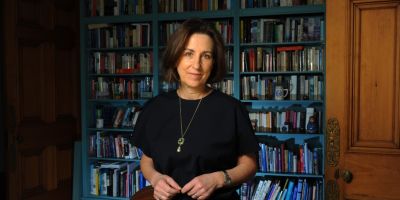Faculty research team marks 40th anniversary of the world’s worst industrial disaster and highlights its lasting impacts

The Bhopal gas leak is now known as the world's worst industrial disaster
Researchers at the Faculty of Arts, Humanities and Cultures have marked the 40th anniversary of the Bhopal Disaster with a series of events and initiatives exploring the disaster’s devasting long-term effects.
On the night of 2-3 December 1984, a gas leak at the Union Carbide pesticide factory in Bhopal, India, released the deadly chemical methyl isocyanate into the air. Thousands of people died within days, and to date, the disaster has claimed 25,000 lives and left over 120,000 people with chronic health problems, making it the world’s worst industrial disaster.
In addition to the gas leak, unsafe disposal of chemical waste by Union Carbide in the 1970s caused severe groundwater contamination, leading to an ongoing struggle for clean water in the area – now known as Bhopal’s 'second disaster'.
Enduring violence: Bhopal’s ongoing water disaster
The research team, including Professor Clare Barker from the School of English and Dr Lynn Wray from the School of Media and Communication, has this week (2-6 December) hosted an exhibition at the University of Leeds in collaboration with the Bhopal Medical Appeal – a charity funding free healthcare for disaster survivors and water-affected communities – to draw attention to the contamination of groundwater in Bhopal.

Combining interviews with water-affected communities, original artworks by Lynn Wray and animations focusing on water infrastructure (ponds, pipes, taps, tanks) and experiments with digital storytelling, the exhibition reveals stories about the contamination, which has polluted the drinking water of thousands of families, causing environmental damage and high rates of chronic illness and congenital disabilities.
Speaking about the exhibition, Professor Barker said:
"Our exhibition provides insight into the experiences of water-affected communities — what it is like to have no alternative to drinking from a contaminated water supply — and highlights the ongoing health effects of groundwater contamination. But it also tells a story of activism and protest as affected communities have mobilised to fight for access to clean water.
“We hope that the exhibition will amplify the voices of survivors and raise awareness of the important work being done by survivor groups and by the Bhopal Medical Appeal, who fund free healthcare and education for the disabled children of gas- and water-affected families."

Tim Edwards, Executive Trustee of the Bhopal Medical Appeal, said:
“For forty years Bhopal has remained an open wound, untreated and unhealed. We are now beginning to understand the devastating extent of Bhopal’s second poisoning, a contamination disaster Union Carbide planted into the ground years before its factory gushed poison gas into the city. Nine in ten gas survivors received a paltry £380 for lifelong injuries, but it looks a fortune to those forced to drink poisoned water who, just like the 2nd and 3rd generation victims of Carbide’s poisons, have received not even a penny. Until Carbide and its owner Dow Inc take full responsibility for their endless disaster in Bhopal, the compassion of thousands of ordinary people across the UK is all that stands between many and the abyss. Our thanks to these supporters can never be enough.”
Bhopal and Storytelling: A Conversation with Indra Sinha
Professor Barker also organised an online talk, ‘Bhopal and Storytelling: A Conversation with Indra Sinha’, held on 4 December. Sinha, author of the Booker-shortlisted novel Animal’s People, discussed the power of storytelling in bringing global attention to the disaster and its aftermath. His reflections resonated deeply with audiences, sparking conversations about the role of literature in shaping environmental and social justice narratives.
The talk also served as the keynote for a two-day symposium, co-organised by Professor Barker, Dr Wray and Dr Antara Chatterjee (IISER Bhopal), which brought together contributors to a forthcoming special issue of the South Asian Review. The symposium provided a platform for scholars to share works-in-progress that explore the intersection of health, environment, and activism in South Asia.
This has been an incredible opportunity to engage with vital stories from Bhopal and to connect research with activism and art. We hope these events have helped raise awareness of the ongoing crisis and the extraordinary efforts of survivors and their supporters.
Earlier this year Professor Barker, her project colleague Lynn Wray and the Bhopal Medical Appeal’s Jared Stoughton recorded a BMJ Medical Humanities podcast to introduce their collaborative work. During the episode they discussed the challenges of telling complex stories in digital media formats: how to keep readers’ attention, how to resist the simplifications of clicktivism, and how to maintain public interest in a disaster that happened 40 years ago. Professor Barker and colleagues have also been interviewed for ‘Bhopal: Stories of an Ecocide’, a new podcast series by Green New Deal Media.
These activities form part of Professor Barker’s work with the Wellcome Trust-funded LivingBodiesObjects project, a multi-year and interdisciplinary umbrella project which pushes boundaries in Medical Humanities by integrating creative and digital methods with research on health and social inequality. For more information about the LivingBodiesObjects project and its ongoing work, visit the University of Leeds LivingBodiesObjects project page.
The Bhopal Medical Appeal helps provide free medical care, education and community support to those suffering the effects of Union Carbide’s gas disaster, and to families still being damaged in their thousands by ongoing water poisoning. For more information on the Appeal’s work, and to donate, visit https://www.bhopal.org/
Header photo credit: Dr Lynn Wray
Photo credits: Professor Clare Barker




